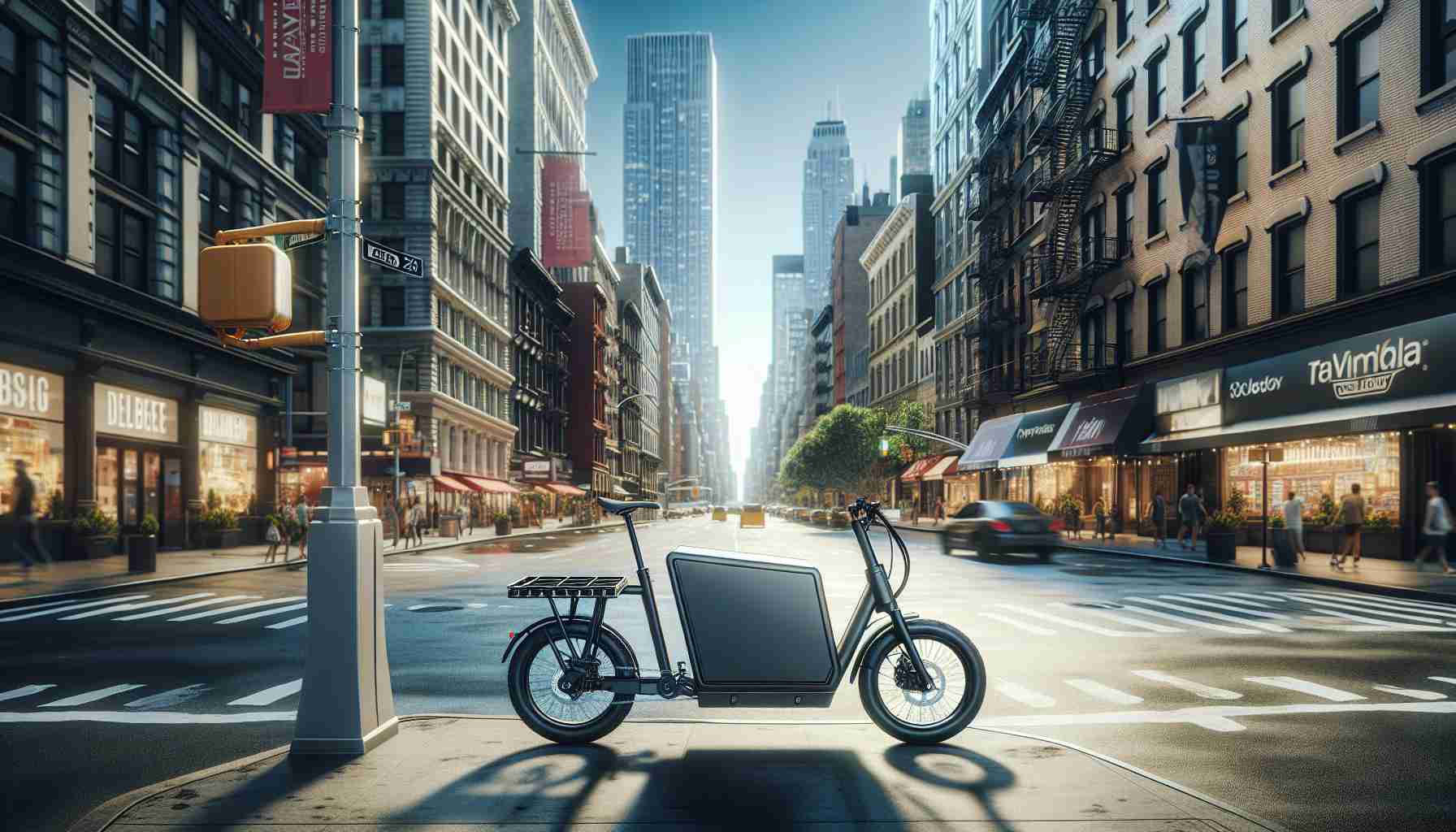The increasing demand for package deliveries in New York City during the pandemic called for a reevaluation of the current delivery system. Recognizing the challenges posed by large trucks, the NYC Department of Transportation (DOT) has come up with an innovative solution. Enter sleek, slim, and electric cargo bikes that not only provide efficient transport but also contribute to a more sustainable and pedestrian-friendly city.
By embracing the use of electric cargo bikes, the DOT aims to address the issues of traffic congestion, pollution, and safety concerns on the crowded streets of NYC. These bikes, equipped with pedal-assist technology, offer ample storage space for packages without occupying excess road space. With a maximum width of 48 inches and up to four wheels, they seamlessly blend into existing bike lanes, reducing the need for extra infrastructure modifications.
Furthermore, the DOT has taken steps to accommodate the unique needs of cargo bike drivers. Dedicated loading zones have been created to facilitate the loading and unloading process, ensuring smooth operations and minimizing disruptions to other road users. By streamlining the delivery process, these bikes offer a practical and sustainable alternative to traditional bulky trucks.
Mayor Eric Adams highlights the positive impact of this change, stating, “Low- and no-emission cargo bikes are one of the ways that we’re changing that paradigm, so we can get what we want, when we want it, without poisoning our air or clogging our streets.” By adopting these sleek delivery bikes, the city not only reduces its carbon footprint but also improves the overall quality of life for its residents.
As we look towards the future of urban delivery, it is clear that innovative solutions like electric cargo bikes can revolutionize the way goods are transported. Their versatility, eco-friendly nature, and ability to navigate congested streets make them a practical choice for cities worldwide. By embracing this shift, cities can create a more sustainable and efficient delivery ecosystem while prioritizing the safety and well-being of their residents.
The electric cargo bike industry is expected to see significant growth in the coming years. According to market research firm MarketsandMarkets, the global electric cargo bike market is projected to reach $17.7 billion by 2027, with a compound annual growth rate of 13.9% during the forecast period.
One of the key drivers of this growth is the increasing demand for sustainable transportation solutions. As cities aim to reduce carbon emissions and improve air quality, electric cargo bikes offer a viable alternative to traditional delivery vehicles. Their zero-emission operation makes them an attractive option for environmentally conscious consumers and governments alike.
In addition to their environmental benefits, electric cargo bikes also offer cost savings for businesses. With rising fuel prices and increasing restrictions on vehicle emissions, the use of electric cargo bikes can help companies lower their operating costs. These bikes are also cheaper to maintain compared to traditional delivery vehicles, further contributing to cost efficiency.
However, there are some challenges facing the electric cargo bike industry. One issue is the limited range and payload capacity of these bikes compared to larger vehicles. While advances in battery technology have led to improvements in range, electric cargo bikes may not be suitable for long-distance deliveries or transporting heavy goods. This limitation needs to be addressed for wider adoption of these bikes in the delivery industry.
Another challenge is the need for infrastructure support. To fully leverage the potential of electric cargo bikes, cities need to invest in dedicated bike lanes, charging stations, and storage facilities. These infrastructure improvements can help overcome safety concerns and logistical barriers, making it easier for businesses to switch to electric cargo bike deliveries.
Overall, the electric cargo bike industry holds great promise for revolutionizing urban delivery systems. With technological advancements, supportive government policies, and infrastructure investments, these bikes have the potential to transform the way goods are transported in cities, leading to a more sustainable and efficient delivery ecosystem.
For more information on the electric cargo bike industry, you can visit the Electric Bike website.







